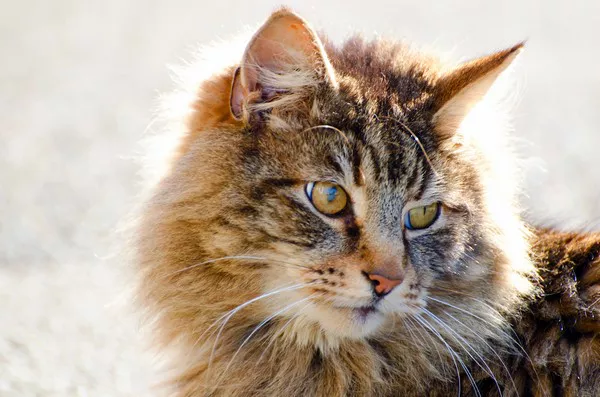As a responsible cat owner, ensuring your feline friend receives proper vaccinations is essential for their health and well-being. Vaccinations protect cats from various infectious diseases, some of which can be severe or even fatal. However, many pet owners often wonder about the costs associated with yearly vaccinations. This essay explores the various factors influencing the cost of cat vaccinations, the types of vaccines available, and the overall financial commitment involved in keeping your cat healthy through vaccination.
The Importance of Vaccinations
Before delving into costs, it’s crucial to understand why vaccinations are necessary. Vaccines work by stimulating the cat’s immune system to recognize and fight off specific pathogens. Here are some key reasons why vaccinations are vital:
Disease Prevention: Vaccines protect against common feline diseases such as feline panleukopenia, feline calicivirus, feline herpesvirus, and rabies.
Public Health: Vaccinating cats against rabies is not only a legal requirement in many areas but also protects public health by preventing the spread of this zoonotic disease.
Long-Term Health: Regular vaccinations can prevent the onset of chronic health issues that may arise from untreated infections, ultimately saving money on veterinary bills in the long run.
Types of Vaccines
Vaccines for cats can be categorized into two main types: core vaccines and non-core vaccines.
Core Vaccines
Core vaccines are essential for all cats, regardless of their lifestyle. These typically include:
Feline Panleukopenia (FPV): A highly contagious virus that can be fatal, especially in kittens.
Feline Calicivirus (FCV): A virus that can cause respiratory infections and oral disease.
Feline Herpesvirus (FHV-1): Another virus responsible for upper respiratory infections in cats.
Rabies: A fatal viral disease that can affect all mammals, including humans.
Non-Core Vaccines
Non-core vaccines are recommended based on the cat’s lifestyle, environment, and risk factors. These may include:
Feline Leukemia Virus (FeLV): Recommended for outdoor cats or those exposed to other cats.
Feline Immunodeficiency Virus (FIV): Considered for cats at risk of exposure to FIV-positive cats.
Chlamydia: For cats at high risk, especially in multi-cat households.
Factors Influencing Vaccination Costs
The cost of cat vaccinations can vary significantly based on several factors:
Geographic Location
The cost of veterinary services can differ widely depending on your location. Urban areas may have higher prices due to increased demand and overhead costs, while rural areas may offer more competitive pricing.
Type of Vaccine
Core vaccines are generally less expensive than non-core vaccines. Additionally, combination vaccines (which protect against multiple diseases in one shot) may offer cost savings compared to administering each vaccine separately.
Veterinary Clinic
Different veterinary clinics have varying pricing structures. Some may offer package deals that include vaccinations, wellness exams, and other services, while others may charge a la carte.
Age and Health of the Cat
Kittens typically require a series of vaccinations, which can increase initial costs. Older cats may also require additional health assessments before vaccination, potentially adding to the overall expense.
Additional Services
Many veterinary clinics recommend wellness exams alongside vaccinations. These exams can include physical check-ups, blood tests, and treatments for parasites, which can all contribute to the total cost.
Average Costs of Cat Vaccinations
While prices can vary, here is a general breakdown of the average costs associated with yearly cat vaccinations:
Core Vaccination Costs
Feline Panleukopenia, Calicivirus, and Herpesvirus (Combination Vaccine): $15 – $30
Rabies Vaccine: $15 – $25
Non-Core Vaccination Costs
Feline Leukemia Vaccine: $25 – $40
Feline Immunodeficiency Vaccine: $25 – $40
Total Estimated Costs
For a typical adult cat receiving core vaccinations, the total cost for yearly vaccinations may range from $30 to $55. If non-core vaccines are recommended based on the cat’s lifestyle, the total could increase to $80 to $150 or more.
Additional Costs to Consider
In addition to vaccination costs, there are other potential expenses to keep in mind:
Wellness Exams
Most veterinarians recommend a wellness exam when administering vaccinations. These exams typically cost between $50 and $100, depending on the clinic and location.
Flea and Tick Prevention
Preventative measures for fleas and ticks often accompany vaccinations. Monthly treatments can range from $10 to $20.
Other Preventative Care
Routine care such as dental cleanings, spaying/neutering, and parasite control should also be factored into your budget.
Budgeting for Cat Vaccinations
To ensure you can afford your cat’s vaccinations and related care, consider the following budgeting tips:
Annual Budgeting: Estimate the total costs for vaccinations, wellness exams, and preventative care at the beginning of each year.
Payment Plans: Some veterinary clinics offer payment plans or financing options, making it easier to manage costs.
Wellness Plans: Look for wellness plans that bundle vaccinations and exams for a flat fee, which can often save money.
Pet Insurance: Consider investing in pet insurance that covers vaccinations and routine care.
Managing Vaccination Anxiety in Cats
While vaccinations are essential, some cats may experience anxiety during vet visits. To help manage this:
Familiarization: Take your cat to the vet for non-vaccination visits to help them acclimate to the environment.
Comfort Items: Bring along your cat’s favorite blanket or toy for comfort during the visit.
Calming Products: Consider using calming sprays or pheromone diffusers to reduce anxiety.
Conclusion
Yearly vaccinations are a crucial aspect of responsible cat ownership, ensuring your feline friend remains healthy and protected from preventable diseases. While costs can vary based on several factors, budgeting appropriately and seeking out affordable options can help manage expenses. By understanding the importance of vaccinations, the types available, and the financial commitment involved, cat owners can make informed decisions that contribute to their pets’ long-term health and happiness. Investing in your cat’s health through vaccinations is not just a financial decision; it’s a commitment to providing a safe and loving home for your furry companion.
Related topic:



























